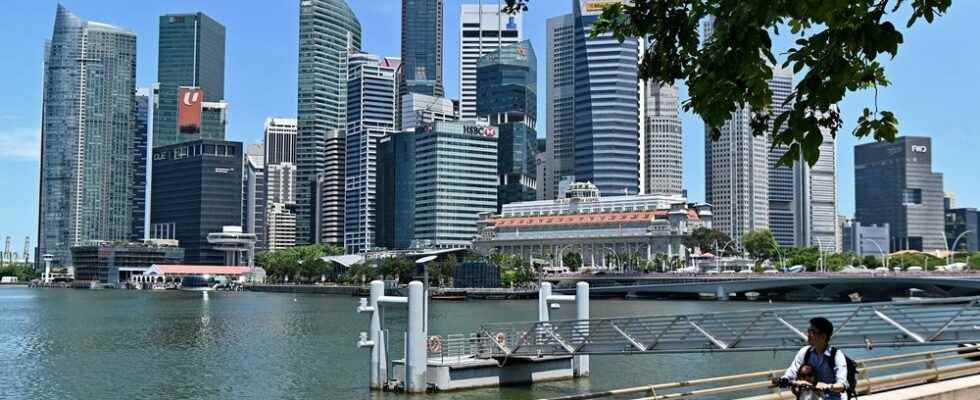For decades, the Offshore Show has been a major attraction for wealthy Chinese wishing to emigrate or place their money away from the eyes of the regime. Generally organized in Beijing or Shanghai, this year it was held discreetly at the beginning of November 2,000 kilometers from the capital, in a large hotel in Chengdu, bringing together a hundred law firms, emigration consultants and bankers. private. “We must respect the anonymity of our clients, it is not very well seen by the authorities, at the moment, to want to settle abroad, justifies a lawyer from the Chinese firm Dantons. lockdowns in response to the Covid pandemic, which are prompting many wealthy families wanting to leave. And then there is the economic and political climate which is not very engaging.”
A few weeks after the 20th Congress of the Chinese Communist Party, which saw President Xi Jinping assume a third term, the atmosphere is not festive among the millionaires. According to a survey conducted earlier this year by the Hurun Institute, nearly a third of the wealthiest 750 Chinese want to leave the country, twice as many as last year. Some 10,000 rich Chinese are expected to emigrate in total in 2022, according to a note from Henley & Partners, a London firm, which notes that China, including Hong Kong, is among the top five countries where the emigration of privileged citizens is strongest in the third trimester.
“Chinese, get rich”, the message of former leader Deng Xiaoping, forty years ago, at the time of the economic opening, has been replaced by the project of “common prosperity” of the current master of Beijing , whose Maoist accents frighten the most fortunate. “Our clients are worried about the direction the Chinese economy is taking, notes a lawyer from Shanghai. The CCP is keeping an eye on the private sector and there is the risk of a significant increase in taxation, a wealth tax.
“We are trying to settle in Singapore, explains a mother whose husband runs a biotechnology company in Canton. We have an apartment in Paris, but Singapore seems more appropriate to raise our children in a cultural setting closer to China. but also because running a business there is easier.” The number of requests to create a family company in the city-state has multiplied by five between 2017 and 2019, and has almost doubled since 2020 to reach 700 entities mainly run by Chinese, specifies a note from Citi Private Bank quoted by the Financial Times.
Singapore’s business district, May 6, 2019.
afp.com/Roslan RAHMAN
Passports issued in dribs and drabs
Singapore, Australia, Canada and the United States are favored by red millionaires, but emigration agencies also tout the “golden visas” offered by Portugal, Greece and Malta, issued in exchange for an investment real estate or a local business. Also popular are the purchases of passports from the Dominican Republic, Saint Kitts and Nevis or Grenada, for 250,000 to 1 million dollars. The latter even offers the advantage of having concluded an agreement with the United States facilitating installation in America.
The “deserters”, however, represent only a tiny part of the 12 million Chinese millionaires. It must be said that the regime does not let them go easily. Passports and travel documents are no longer issued except in dribs and drabs. Impossible to cross the border with a simple tourist visa: for example, you need a work contract or be a student abroad. China also prohibits dual nationality. But the main difficulty lies in access to its financial assets once outside the borders. Capital transfers are limited to 50,000 dollars per year and per person, requiring complicated arrangements.
Many of the Chinese super-rich are not only worried about their wealth but also about their safety and that of their families. “To avoid any pressure, via actions against those who remained in the country, it is preferable to send all your family away”, explains an emigration agent. Not enough to cool the ardor of the candidates at the start, scalded by the “disappearances” of several billionaires in view in recent years.
